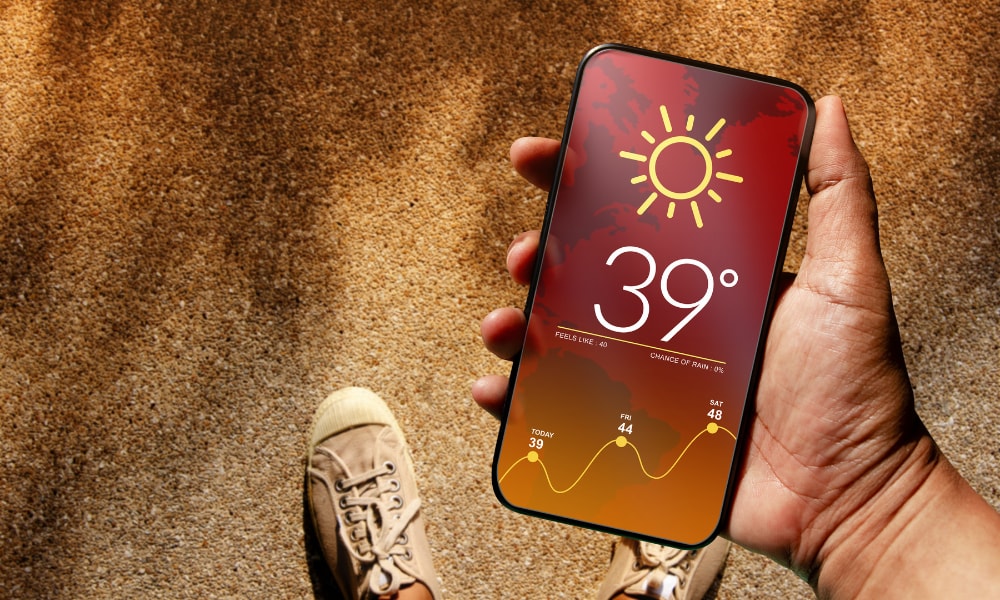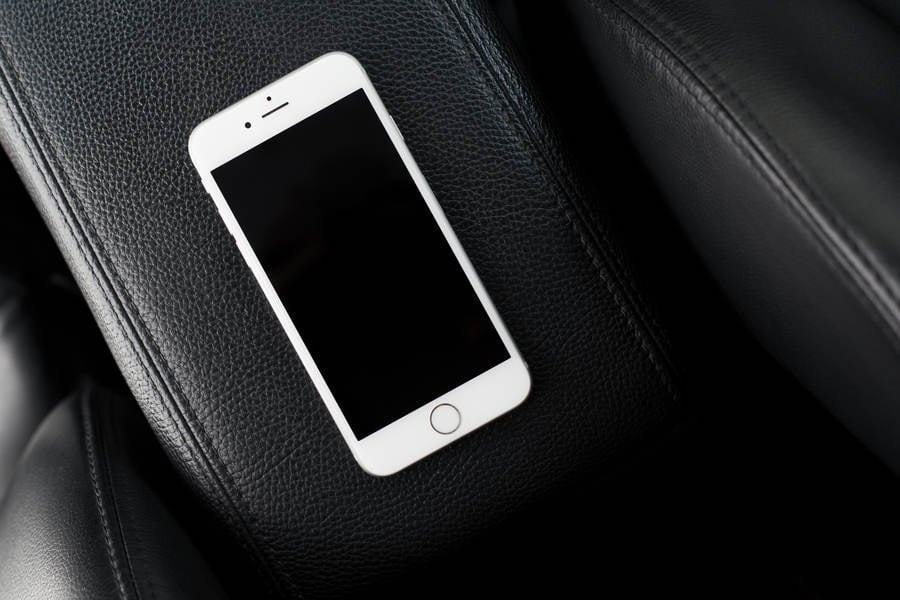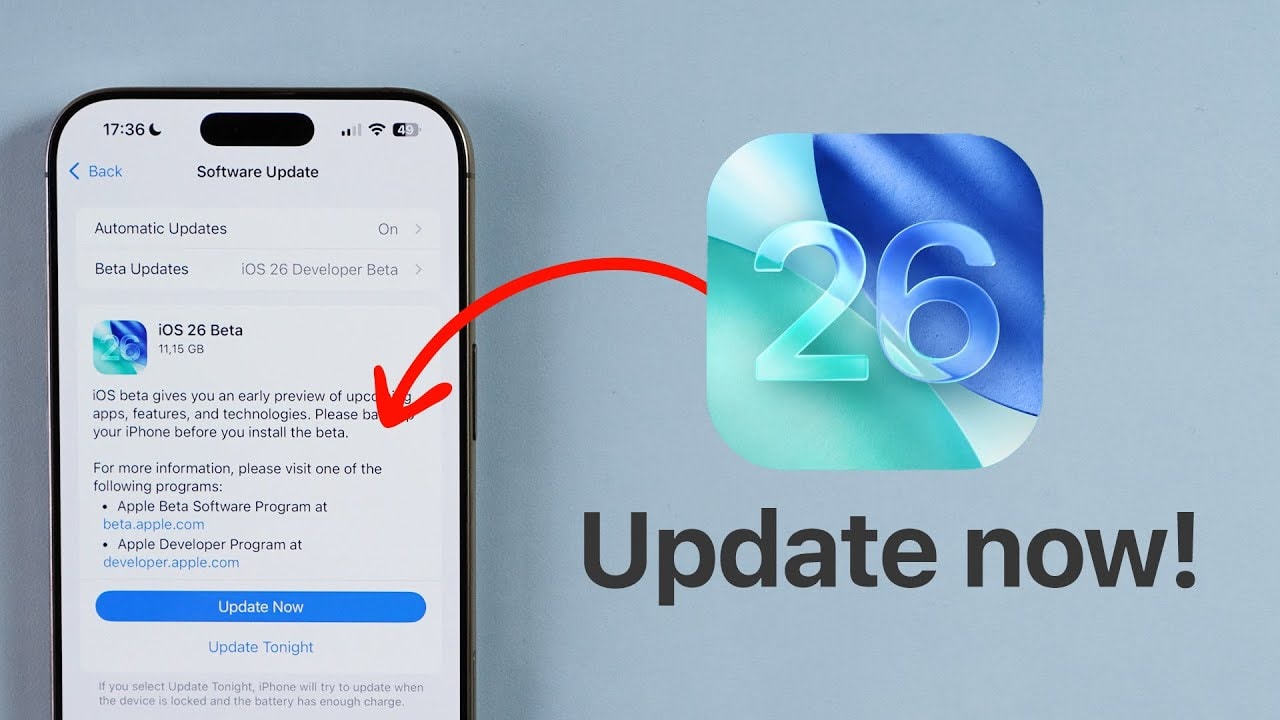How to keep your phone safe on hot days?
When the temperature outside increases, not only the human body needs protection but also electronic devices such as phones are at risk of damage. So how to keep your phone safe on hot days?
On hot summer days, when the temperature outside reaches record highs, not only people but also your phone has to “struggle” to cope. In fact, the device can get so hot that it shuts down, reduces performance or even damages the battery if not properly protected.

Luckily, you don’t need any fancy tools to prevent this. With a few simple tips, you can keep your phone cool, running smoothly, and lasting all summer long.
1. Do not leave your phone in the car under hot sun for long periods of time.
If you don’t want to expose your phone to the sun, leaving it in your car when you go to the beach isn’t a wiser choice. Aside from the risk of theft, car interiors can quickly become ovens on hot days, with temperatures inside the car exceeding the phone’s tolerance, damaging the battery, shortening the life of components, and even causing the device to shut down or become deformed.

It’s best to carry your phone with you or keep it in a cool, shady place. Just like you wouldn’t leave your pet in a hot car, electronic devices can also suffer from “heatstroke” if not properly cared for during the harsh summer months.
2. Remove the case when charging the phone
It is perfectly normal for your phone to heat up while charging, as this heat is designed to escape through the surface of the case. However, if you are using a thick, bulky case or one made from a material that does not retain heat well, this case can trap heat inside, causing the device to become hotter than necessary, especially on hot days when the temperature is high.
If you notice your phone getting unusually warm while charging, remove the case to help the device dissipate heat better. This is a simple but effective step to protect the battery, prolong the life of the device and prevent the risk of overheating during hot summer days.
3. Avoid charging and using “heavy apps” at the same time
When you play graphics-heavy games or run high-performance applications, your phone's processor will have to work at full capacity, creating a significant amount of heat. At the same time, these tasks also drain the battery very quickly, making it easy for you to get into the habit of playing while plugged in to charge.

However, the combination of continuous data processing and charging the battery at the same time will cause the device to generate more heat than usual, putting the phone at risk of overheating, especially in hot weather conditions.
To protect your device's performance and longevity, avoid performing heavy tasks while charging. A little patience can help your phone stay cooler and last longer in the long run.
4. Choose a shady place to use your phone on hot days
Manufacturers often boast screens with brightness levels of up to 1,000–2,000 nits, allowing you to read content clearly under harsh sunlight. However, maintaining high brightness for a long time not only consumes battery but also makes the phone generate more heat, especially when used outdoors in hot, high temperatures.
In addition, direct sunlight also transmits heat through glass and metal, causing the device to heat up quickly. So if you have to use your phone outdoors for a long time, don't forget to find a shady place, this will help reduce the heat for both you and your beloved phone.
5. Give your phone a “rest” after shooting long videos
Recording video is one of the most resource-intensive tasks on your phone. Every second you record requires your device to capture, process, and store megabytes of data, and this process generates a lot of heat.
With smartphones, if you shoot long clips continuously, heat will quickly build up and affect performance. So, between recordings, pause for a few minutes to give the device time to cool down. Giving the phone a “rest” not only helps the device operate more stably, but also helps protect the battery and hardware in hot weather conditions.
6. Choose to buy chargers from reputable brands
Many people often choose to buy cheap chargers of unknown origin. But be wary of accessories with "unbelievable" prices, because they are often counterfeit, lacking important protective components to control current and prevent overheating. Using a poor quality charger not only damages the battery but also poses a risk of fire and explosion.
Instead of saving a few thousand, invest in a USB-C charger or a backup battery from a reputable brand, recommended by experts. A small investment today can help you avoid big risks later for both your device and your own safety.
7. Always keep your phone's operating system up to date
Updating your operating system is actually one of the most effective ways to keep your phone running smoothly, especially when it comes to temperature control.
A typical example is the iPhone 15 Pro that had an overheating problem due to a bug in iOS 17 combined with some apps like Instagram and Uber. Fortunately, Apple quickly released an update to fix the problem. This shows that the overheating problems are sometimes software-related rather than hardware-related, and timely updates can completely solve them.

Note that if your phone seems to get hot during or immediately after the update, that's normal. The system will often run data optimization processes in the background, but the temperature should stabilize after a short while.
Also, if you are using an experimental operating system version like iOS 26 beta or Android 16 beta, it is understandable that your device will be hotter than usual. Beta versions are not fully optimized for performance and battery life, so it is best to consider before installing, especially in the summer when everything is prone to overheating.
8. Check the battery
If your phone keeps heating up without any of the situations mentioned in the article such as recording a video, charging while using heavy applications or leaving it in the sun, the culprit is most likely the battery inside is faulty or degraded.
For iPhone, go to Settings > Battery > Battery Health to check if the battery is still performing optimally.
For Android, the path may be different: on Pixel phones, go to Settings > Battery > Battery Diagnostics; on Samsung, go to Settings > Battery Info.
If the battery notification system is showing signs of deterioration, it may be time to consider replacing the battery to avoid potential risks and restore device performance.
Additionally, if you notice any unusual signs such as a swollen phone, cracked casing, or an unusually curved screen, stop using it immediately. This could be a sign of a swollen battery, a rare but very dangerous condition./.

.jpg)


.jpg)
